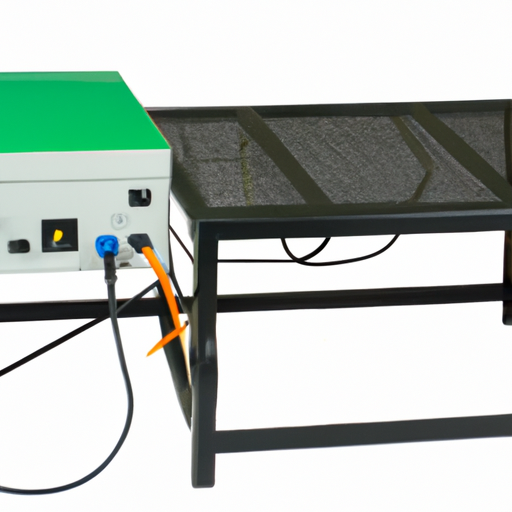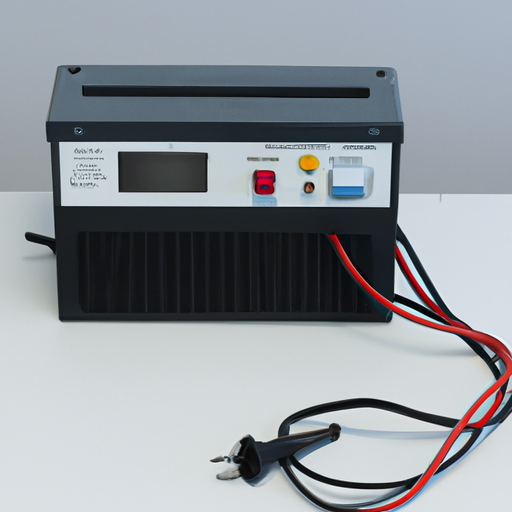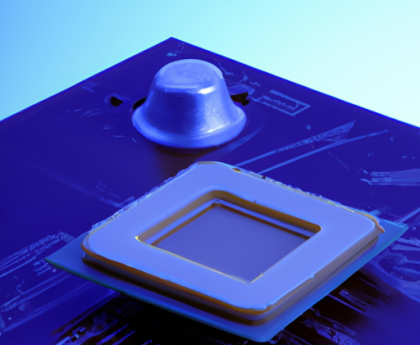“Power Up Your Projects with Bench Power Supply!”
Introduction
A bench power supply is an essential tool for any electronics enthusiast or professional. It is a device that provides a stable, adjustable, and reliable source of power for testing and troubleshooting electronic circuits. It is also used to power up and test components and devices. Bench power supplies are available in a variety of sizes and configurations, and can be used for a variety of applications. They are an invaluable tool for any electronics hobbyist or professional.
How to Choose the Right Bench Power Supply for Your Needs
When it comes to powering your electronics projects, a bench power supply is an essential tool. Bench power supplies provide a reliable, adjustable source of power for testing and troubleshooting circuits. Choosing the right bench power supply for your needs can be a daunting task, but with a few key considerations, you can make the right choice.
First, consider the voltage and current requirements of your project. Bench power supplies are available in a range of voltage and current ratings, so make sure to select one that meets or exceeds your project’s requirements. It’s also important to consider the type of output you need. Most bench power supplies offer both DC and AC outputs, so make sure to select one that meets your needs.
Next, consider the features you need. Many bench power supplies offer additional features such as adjustable current limiting, over-voltage protection, and multiple outputs. These features can be useful for more complex projects, so make sure to select a power supply that offers the features you need.
Finally, consider the size and weight of the power supply. If you plan to use the power supply in a lab or workshop, you may want to select a larger, heavier model that can be securely mounted to a workbench. If you plan to use the power supply in the field, you may want to select a smaller, lighter model that can be easily transported.
By considering these key factors, you can make sure to select the right bench power supply for your needs. With the right power supply, you can be sure that your electronics projects will be powered reliably and safely.
The Benefits of Using a Bench Power Supply in Your Workshop
A bench power supply is an essential tool for any workshop. It is a device that provides a stable, adjustable, and reliable source of power for a variety of applications. It is a versatile tool that can be used for a variety of tasks, from powering small electronics to testing and troubleshooting larger systems.
The primary benefit of using a bench power supply in your workshop is its ability to provide a stable and reliable source of power. Bench power supplies are designed to provide a consistent voltage and current output, which is essential for powering sensitive electronics. This ensures that the power supply will not cause any damage to the components it is powering. Additionally, the adjustable output of a bench power supply allows you to tailor the power output to the specific needs of the project.
Another benefit of using a bench power supply is its ability to provide a safe environment for testing and troubleshooting. Bench power supplies are designed to be isolated from the main power source, which prevents any potential damage to the components being tested. Additionally, the adjustable output of a bench power supply allows you to safely test components at different voltages and currents. This is especially useful when troubleshooting complex systems.
Finally, bench power supplies are also useful for powering small electronics. Many bench power supplies are designed to provide a range of voltages and currents, which makes them ideal for powering small electronics such as LED lights, motors, and other components. This makes them a great tool for prototyping and testing small projects.
In conclusion, a bench power supply is an essential tool for any workshop. It provides a stable, adjustable, and reliable source of power for a variety of applications. Additionally, it is a safe and effective tool for testing and troubleshooting complex systems. Finally, it is also useful for powering small electronics. For these reasons, a bench power supply is an invaluable tool for any workshop.
Troubleshooting Common Issues with Bench Power Supplies
Bench power supplies are essential tools for any electronics laboratory. They provide a reliable and adjustable source of power for testing and troubleshooting circuits. However, like any other piece of equipment, bench power supplies can experience issues that can affect their performance. This article will discuss some of the most common issues with bench power supplies and how to troubleshoot them.
The first issue that can occur with bench power supplies is a lack of output voltage. This can be caused by a number of factors, including a faulty power cord, a blown fuse, or a faulty power supply. To troubleshoot this issue, first check the power cord for any signs of damage. If the cord appears to be in good condition, then check the fuse to make sure it is not blown. If the fuse is blown, replace it with a new one. If the fuse is not the issue, then the power supply itself may need to be replaced.
Another common issue with bench power supplies is an incorrect output voltage. This can be caused by a faulty voltage regulator or a faulty power supply. To troubleshoot this issue, first check the voltage regulator to make sure it is functioning properly. If the voltage regulator appears to be in good condition, then check the power supply itself to make sure it is providing the correct voltage. If the power supply is not providing the correct voltage, then it may need to be replaced.
Finally, bench power supplies can experience issues with their current output. This can be caused by a faulty current regulator or a faulty power supply. To troubleshoot this issue, first check the current regulator to make sure it is functioning properly. If the current regulator appears to be in good condition, then check the power supply itself to make sure it is providing the correct current. If the power supply is not providing the correct current, then it may need to be replaced.
In conclusion, bench power supplies can experience a variety of issues that can affect their performance. The most common issues include a lack of output voltage, an incorrect output voltage, and an incorrect current output. To troubleshoot these issues, it is important to check the power cord, fuse, voltage regulator, and current regulator to make sure they are functioning properly. If any of these components are not functioning properly, then the power supply itself may need to be replaced.
Exploring the Different Types of Bench Power Supplies
Bench power supplies are an essential tool for any electronics laboratory. They provide a reliable and adjustable source of power for testing and troubleshooting circuits. There are several different types of bench power supplies available, each with its own advantages and disadvantages. In this article, we will explore the different types of bench power supplies and discuss their features and applications.
The most common type of bench power supply is the linear power supply. These supplies use a transformer to step down the voltage from the wall outlet and then use a series of linear regulators to provide a stable output voltage. Linear power supplies are reliable and provide a clean output voltage, but they are inefficient and generate a lot of heat.
Switching power supplies are the most efficient type of bench power supply. They use a switching regulator to convert the AC voltage from the wall outlet into a DC voltage. Switching power supplies are more efficient than linear power supplies, but they can generate electrical noise that can interfere with sensitive circuits.
Programmable power supplies are the most versatile type of bench power supply. They allow the user to program the output voltage and current, making them ideal for testing and troubleshooting circuits. Programmable power supplies are also more efficient than linear power supplies, but they are more expensive.
Finally, there are adjustable power supplies. These supplies provide a variable output voltage and current, allowing the user to adjust the output to suit their needs. Adjustable power supplies are the most economical type of bench power supply, but they are not as efficient as programmable or switching power supplies.
In conclusion, there are several different types of bench power supplies available, each with its own advantages and disadvantages. Linear power supplies are reliable but inefficient, while switching power supplies are efficient but can generate electrical noise. Programmable power supplies are the most versatile, while adjustable power supplies are the most economical. When choosing a bench power supply, it is important to consider the features and applications that best suit your needs.
Tips for Maintaining Your Bench Power Supply for Optimal Performance
1. Keep the power supply clean and free of dust. Dust can accumulate on the power supply and cause it to overheat, leading to decreased performance and even damage. Regularly clean the power supply with a soft cloth and compressed air.
2. Make sure the power supply is properly ventilated. If the power supply is placed in an enclosed space, make sure there is adequate airflow to keep it cool.
3. Check the power supply’s connections regularly. Make sure all the connections are secure and free of corrosion.
4. Make sure the power supply is properly grounded. This will help protect the power supply from electrical surges and other power issues.
5. Use the correct power supply for the job. Make sure the power supply is rated for the voltage and current you need.
6. Avoid overloading the power supply. Make sure the power supply is not being asked to provide more power than it is rated for.
7. Store the power supply in a cool, dry place. Heat and humidity can damage the power supply and reduce its performance.
8. Use a surge protector. This will help protect the power supply from power surges and other electrical issues.
9. Have the power supply serviced regularly. This will help ensure that it is running at peak performance and that any potential issues are addressed before they become serious.
Conclusion
The bench power supply is an essential tool for any electronics enthusiast or professional. It provides a reliable and adjustable source of power for testing and troubleshooting circuits. With its adjustable voltage and current, it can be used to power a wide variety of components and circuits. It is also a great tool for teaching electronics and troubleshooting. With its versatility and reliability, the bench power supply is an invaluable tool for any electronics enthusiast or professional.




